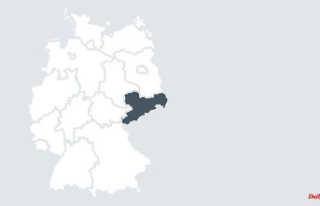Fuel prices continue to plummet. E10 premium petrol is back to the level before the start of the Ukraine war, according to figures from ADAC on Wednesday. A liter cost the nationwide average of 1.75 euros on Tuesday. That is 3.9 cents less than a week earlier and exactly the value of February 23rd. At that time, however, the tensions leading up to the Russian attack had already caused fuel prices to rise.
Despite the current decline, the ADAC sees no reason to give the all-clear: "At first glance, we only have a relaxation, but rather a dramatically high price level if you factor out the tax rebate," says fuel market expert Jürgen Albrecht.
The temporary tax cut is the only reason why it is below 2 euros at all. "And you have to expect that it will end as planned and that the price increase will then be passed on in full," he warns. The tax rebate of 35.2 cents per liter of premium petrol and 16.7 cents per liter of diesel applies in June, July and August.
Diesel was also cheaper on a weekly basis: the price fell by 3.5 cents to 1.928 euros per liter. However, the fuel is still a long way from the pre-war level. "With diesel, things look far more dramatic at the gas station," agrees Albrecht. On February 23, the fuel cost 1.663 euros per liter. In the weeks following the start of the war, diesel became much more expensive than E10 and overtook it in price.
For E10 it was the eighth price decline in a row on a weekly basis. Diesel prices have also fallen, but with temporary stagnation or even slight increases on a weekly basis. The 1.75 euros for E10 on Tuesday was the second lowest daily price since the outbreak of war. On Sunday, the fuel was already slightly cheaper at 1.748 euros per liter.
As an antidote for the high prices - also with a view to the time after the expiry of the tax rebate, according to Albrecht, one thing is missing above all: "What we need is more competition. However, this does not appear to be the case in the upstream stages of the value chain. Otherwise the margins in the refineries would not be as high as they are now and would not continue to increase,” he says. Here, the ADAC is hoping, among other things, for the results of the ongoing investigation of the market by the Federal Cartel Office.
Subscribe to the podcast on Spotify, Apple Podcast, Amazon Music and Deezer. Or directly via RSS feed.












